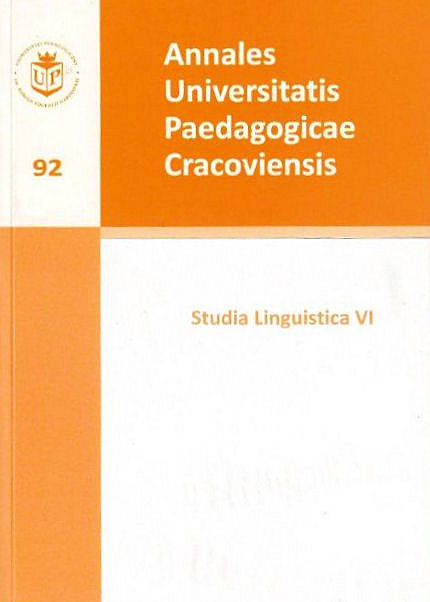Językoznawstwo subwersywne
Main Article Content
Abstract
The article attempts to present one of the trends in linguistics which blurs the distinction between the central and the peripheral. The author proposes that the margins and peripheries are potentially more fertile and conducive to the development of their respective fields. This is due to the fact the progress in linguistics is not linear but based on qualitative turns and breakthroughs during which certain trends prevail whereas other are confined to the margins of the discipline. The new dominant trends owe their success not to their superiority but to their effectiveness at a given moment and conformity with the needs of their times. The dominant trends are relatively stable (synchronically) but the new and seminal is provided by peripheral niches which create innovation. Such ‘outsiders’ are responsible for epiphanies, brilliant ideas and creative solutions which break the mould of established trends. ‘Subversive linguistics’ is a label that can be attached to certain conscious procedures in linguistics which, whilst not uniformly critical of the dominant trends, try nevertheless to create a field of innovation and scope for creative change. The ‘subversive’ part of the label refers to the attempts to undermine the established notions of traditional linguistic from the inside and alter them creatively.
Downloads
Article Details
Author, submitting a text to the editorial board of the journal “Annales Universitatis Paedagogicae Cracoviensis. Studia Linguistica", certifies that the content of the article has not been published so far and that the work does not violate in any way the copyright or related rights of other person, as well as other rights of third parties, and that no one's rights to the work (or any part thereof) have been missed. After signing the contract, the property rights to the published materials are transferred to the University of the National Education Commission, Krakow.
“Annales Universitatis Paedagogicae Cracoviensis. Studia Linguistica” is an open access journal, and all its content is made available free of charge to users and institutions under the Creative Commons CC-BY-NC-ND 4.0 license (attribution, non-commercial use, no derivative works). Under this license, the authors agree that their work may be lawfully reused for any purpose, except for commercial purposes, without the prior consent of the author or publisher. Everyone can read, download, copy, print, distribute and process these works, provided that the author's marking and the original publication place are correct. Published texts may not be used to create derivative works (e.g. to translate and publish in another language without the consent of the publisher). This is in line with the BOAI (Budapest Open Access Initiative) definition. "Studia Linguistica" does not charge for submitting or processing articles.
